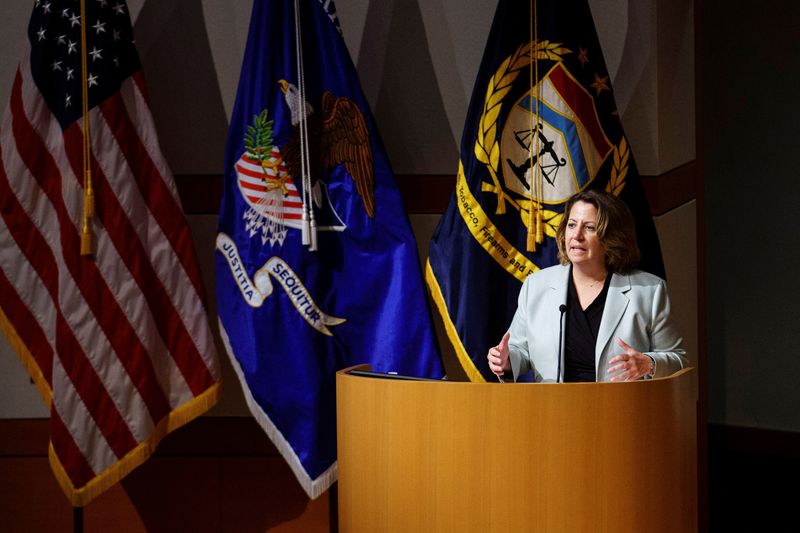By Luc Cohen
NEW YORK (Reuters) -The U.S. Justice Department (DOJ) will use a "carrots and sticks" approach to combat corporate crime by encouraging companies to report and prevent misconduct while enhancing penalties for repeat offenders, it on Thursday announced.
At an event at New York University, Deputy Attorney General Lisa Monaco said the DOJ will make it harder for companies to enter into multiple settlements that defer or waive prosecutions, and that it would try to reward companies that claw back executive compensation after learning of misconduct.
The change would "shift the burden of corporate financial penalties away from shareholders — who frequently play no role in misconduct — onto those who are more directly responsible," Monaco said, adding that the DOJ would develop more detailed guidance about the rewards by the end of the year.
Companies that voluntarily report misconduct and cooperate with investigators will not be required to plead guilty in most cases, Monaco said, sparing them hefty fines. She described the plan as a "carrots and sticks" approach to let companies' lawyers make a "business case" for strong compliance.
Democratic President Joe Biden's Justice Department has toughened its stance toward corporate offenders. White-collar prosecutions fell to an all-time low under former President Donald Trump's Republican administration.
In October, the Justice Department issued new rules requiring companies to name all people involved in misconduct in order to receive credit for cooperation, and required prosecutors to consider a company's full record when deciding how to resolve a probe.
Since Biden took office, federal prosecutors have brought racketeering charges against the founder of Archegos Capital Management over the $36 billion firm's meltdown, and have secured a guilty plea from a unit of Allianz (ETR:ALVG) SE for fraud over the collapse of some investment funds.

Under the new policy on settlements, DOJ leadership must approve any company's second non-prosecution or deferred prosecution agreement, Monaco said. Those deals let companies escape criminal prosecution in exchange for fines and promises of better behavior.
Between 10% and 20% of all significant corporate criminal resolutions involve repeat offenders, Monaco said.